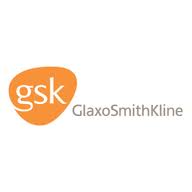 GlaxoSmithKline, the British drugmaker, announced an agreement to pay $3 billion in fines for promoting its antidepressants for unapproved uses and neglecting to report safety data about one of its diabetes drugs. The agreement also requires the payment of civil penalties for the improper marketing of a six other medications. GlaxoSmithKline manufactures best-selling drugs Paxil, Wellbutrin, and Avandia.
GlaxoSmithKline, the British drugmaker, announced an agreement to pay $3 billion in fines for promoting its antidepressants for unapproved uses and neglecting to report safety data about one of its diabetes drugs. The agreement also requires the payment of civil penalties for the improper marketing of a six other medications. GlaxoSmithKline manufactures best-selling drugs Paxil, Wellbutrin, and Avandia.
Federal prosecutors announced that the company agreed to plead guilty to criminal charges in the case. The fine against GlaxoSmithKline makes a record for money recovered by the federal government in a single year under the “whistle-blower” law. The Justice Department says that the prosecutions bring in around $15 in recoveries for every $1 spent.
The False Claims Act, also known as the federal whistle-blower law, dates to 1863 and was originally designed to be a check on war profiteering after the Civil War. The whistle-blowers receive a portion of any money recovered by the federal government.
James M. Cole, the deputy attorney general, said, “Today’s multibillion-dollar settlement is unprecedented in both size and scope. It underscores the administration’s firm commitment to protecting the American people and holding accountable those who commit health care fraud.”
Critics argue that large fines are not enough to discourage drug companies from illegal behavior. They say that singling out individual executives for punishment is the only way that practices will begin to change. In all of the cases, no individuals have been charged.
Eliot Spitzer, former attorney general of New York, said, “What we’re learning is that money doesn’t deter corporate malfeasance. The only thing that will work in my view is C.E.O.’s and officials being forced to resign and individual culpability being enforced.” Spitzer sued GlaxoSmithKline in 2004 over similar accusations involving Paxil.
